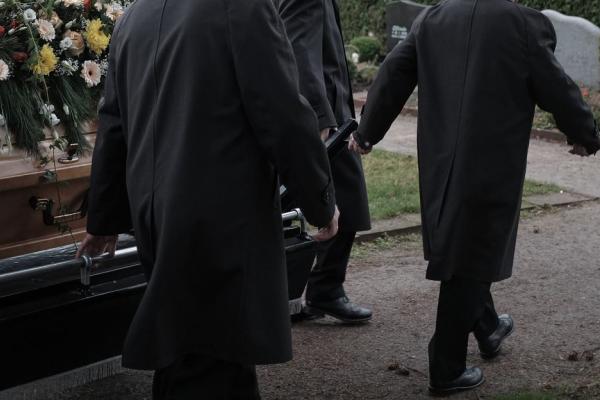
If you are an heir but you are not aware of it, will you be notified? Discover the process here
Today at Áltima we consider a situation that you may have asked yourself at some point: if you are an heir and you have no knowledge of it, will you be notified? We answer this question and explain how to proceed.
If you are an heir, will you be notified?
Perhaps you are wondering if someone notifies you when you become an heir. Unfortunately, you will be disappointed to discover that what happens in the movies doesn't happen in real life.
No one will notify you if you are the beneficiary of an inheritance. Even the notary is not obliged to inform you that you are an heir, unless the person whose property you are inheriting has left a record of this in their will. In other words, they must have expressly asked for this to be communicated after their death.
Only in this situation will the notary in question contact you to let you know that you are an heir. If this is not the case, how do you determine whether you are the heir to an inheritance? In this instance, you will only be able to confirm it on your own initiative, following the process that we are going to explain below.

How to find out if you are heir to an inheritance
As we have already seen, if you are an heir, nobody will let you know. Therefore, the only way to find out is to take the initiative to find out for sure.
If you suspect that you may be the beneficiary of an inheritance, the first thing to do is to apply for the death certificate of the deceased person at the Civil Registry. With this document, you will be able to begin the process of confirming whether you are an heir. Without it, you will not be able to take any further steps to determine whether you are the heir to an inheritance.
If there is no will, who has the right to inherit?
When there is no will, Spanish law establishes the criteria for succession. The Civil Code distinguishes, in this case, two types of heirs:
- Forced heirs are those who receive the inheritance, regardless of whether or not there is a will. We are referring to children or descendants in relation to their parents and ascendants, ascendants in relation to their children if there is no will, and the widow or widower. In an inheritance without a will, there are forced heirs because they are obligatory by law.
- Legitimate heirs are those determined by the State in the event that there is no will. In this case, we are referring to relatives of the deceased, the widow or widower and the State itself.
Current legislation also establishes the order of preference for inheritance when there is no will after the death of a person, in order to determine who the heirs are if there is no will.
We should include here the concept of the declaration of intestate heirs. This is a public document that makes it possible to determine who the heirs are of a person who has not left a will and in what proportion, in accordance with the regulations in force.
It is necessary to formalise a declaration of heirs before a notary in order to define which relatives have inheritance rights and to what extent. Documents such as the death certificate, the certificate of last will and testament or the family register are required and two witnesses must be present. This procedure is usually more onerous than a will, which is why it is always recommended that you plan your inheritance in advance to avoid this type of procedure for your loved ones in the future.
What to do if you suspect you may be an heir
An inheritance can only become binding if you confirm that you are the heir to it. If you are an heir but you are not aware of it, will you be notified? As we have already seen, no, it does not work like that. For this reason, you must be the one to verify it.
How do you know if someone has included you in their will?
To find out if you are an heir to an inheritance, as mentioned earlier, you need the death certificate of the deceased person in order to start the process.
The next step is to obtain the Certificate of Last Will and Testament. To do this, you will need to go to the General Register of Last Will and Testament Acts. By doing so, you will be able to prove whether your loved one has made a will and, if so, which notary you should go to.
Once you have this document and have verified the existence of the will, you will need to contact the notary in question to obtain an authorised copy of the will.
Having this document is essential in order to be able to start the inheritance proceedings.

Steps to follow if you suspect that you are an heir
If you suspect that you may be an heir to an inheritance, there are a number of steps to take. Follow these steps:
- Confirm that you have the right to inherit.
- Obtain the Certificate of Last Will and Testament to certify the existence of a will.
- Go to the notary and request the opening of the will.
- Find out exactly what assets the inheritance is made up of.
- Contact the rest of the heirs to accept the inheritance through the notary.
According to Spanish law, there is a maximum period of 30 years from the death of a loved one to claim the inheritance. In addition, in the event that you do not reach an agreement with the rest of the heirs for the distribution of the inheritance, you will have to initiate a judicial process to carry out this division within the law.
To avoid this type of situation, the best thing to do is to leave a will. Remember that there are different types of wills in Spain where you can choose how to distribute your legacy and determine your last wishes. Choose the best one for you based on how you want your assets and property to be divided after your death.


